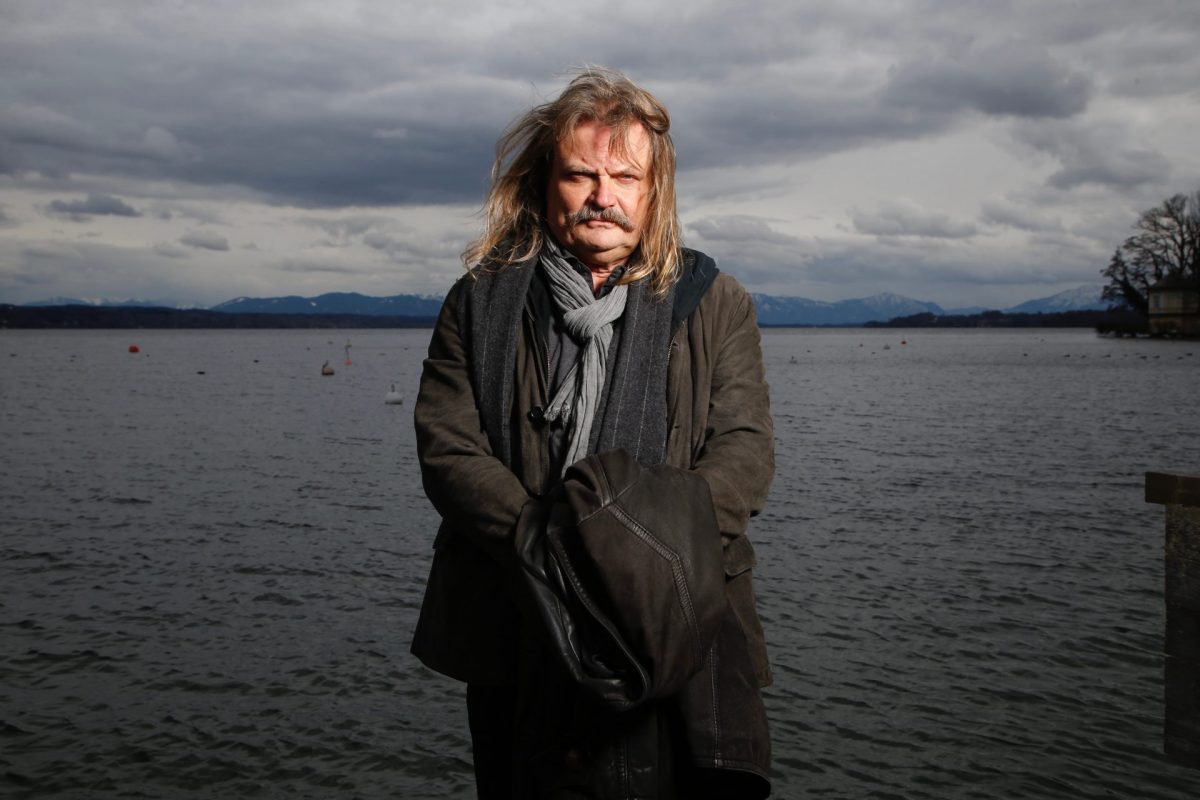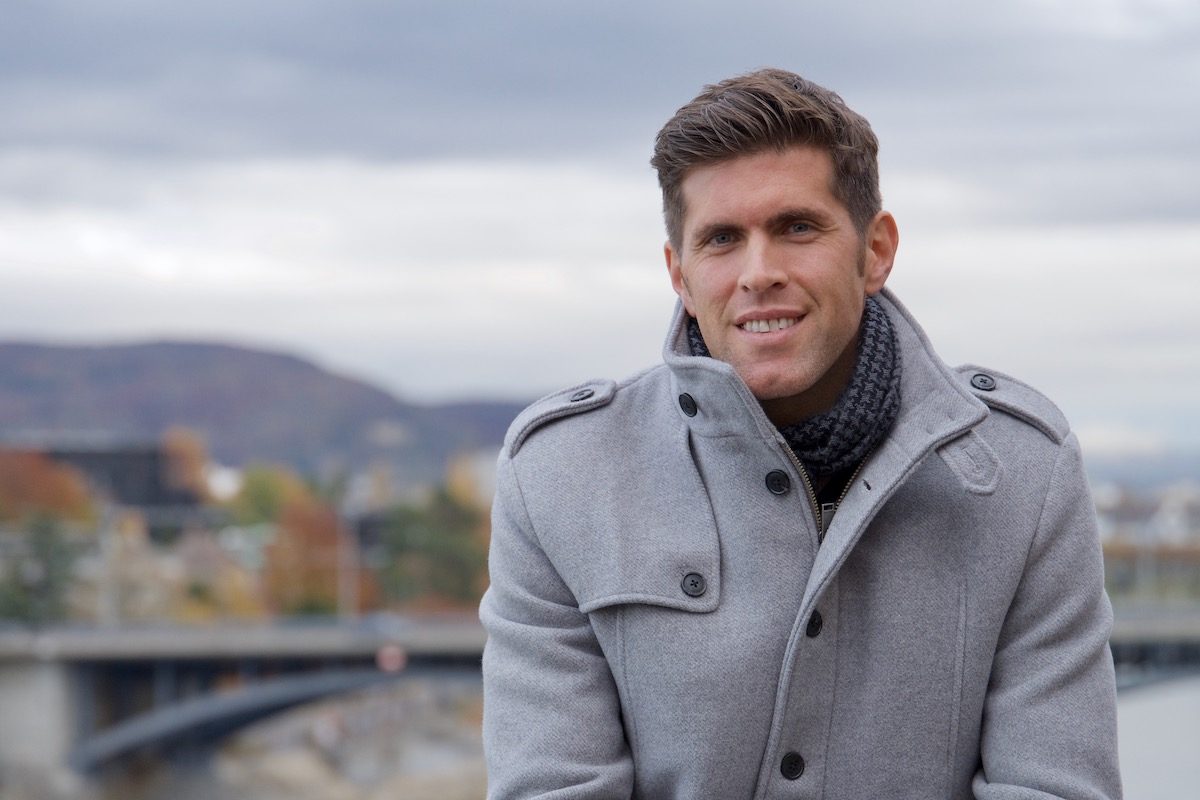
“2019 is facing major change.” Beni Huggel, 41, former soccer player and coach
Although Beni Huggel didn’t start out as a professional soccer player until he was 21, he did it right: he was a seven-time Swiss champion with FC Basel and earned 41 caps for the Swiss national team. Now 41, he is embarking on a new career in executive coaching.
We meet on a foggy day on Basel’s Münsterplatz. The place Beni Huggel has selected for our meeting is cold and gray. It’s a far cry from Barfüsserplatz or Marktplatz, where the soccer club celebrated its biggest achievements with colorful crowds of fans.
There’s nobody here. This contrast suits Beni Huggel. The former soccer star is a people person, yet he avoids huge gatherings in his personal life. His differences already stood out during his playing career. He was never the typical cliché of a soccer player spoiled by success: bright and different, Beni Huggel is the type of man you can talk to about anything. He’s an erudite, multifaceted man.
Born on the seventh day of the seventh month of 1977, the number 7 plays a peculiar role in his life. We discuss seven-year cycles, Swiss Federal Council elections and outbursts (of rage).
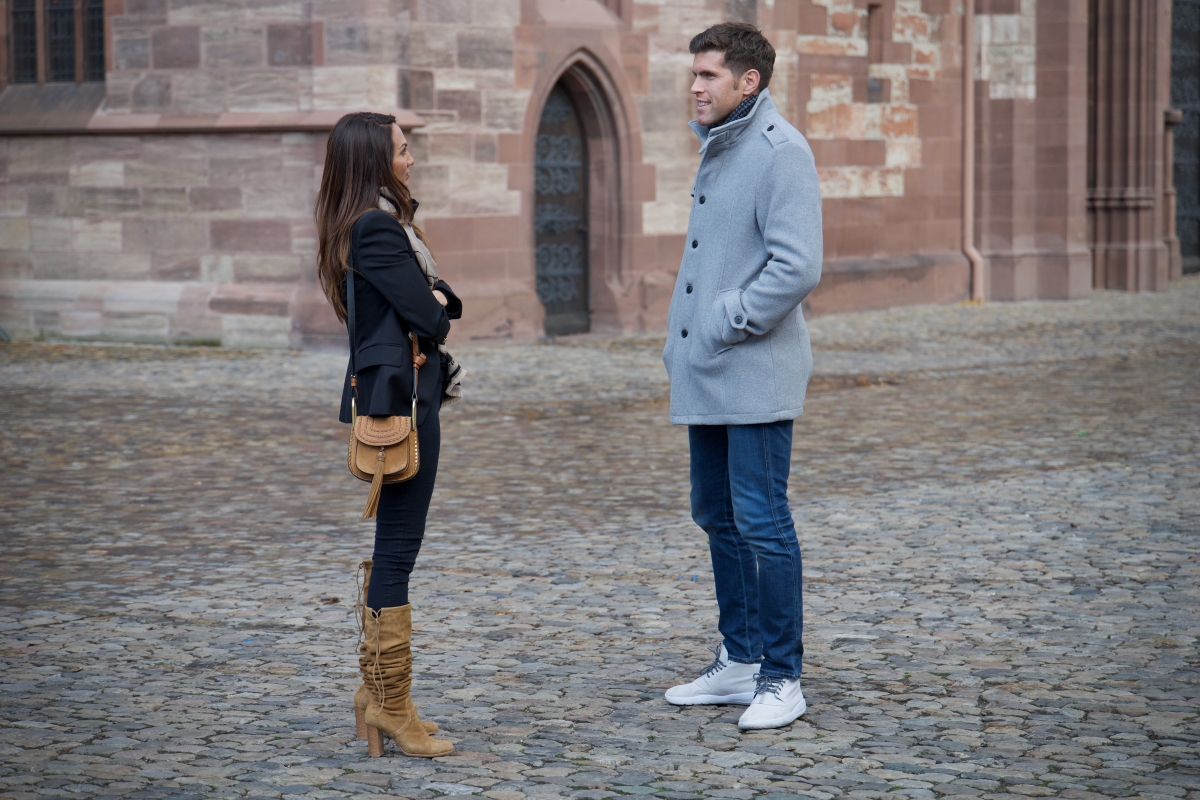
Anna Maier and Beni Huggel on Basel’s Münsterplatz. Photo: Silvan Dietrich/Leica
“I was a slow starter.”
Anna Maier: The end of the year is a time for reflection – for you, too. I know you go through your diary and look at everything that’s happened over the past year. How was 2018 for you?
Beni Huggel: Of course, the soccer World Cup in Russia dominated my summer. I was working as a pundit for Swiss television. Then I took three weeks’ holiday. That meant I spent almost two months traveling over the summer. That was a very formative experience.
Career-wise, I’m following a new path: early this year, I completed a training program. Yes, a lot happened this year.
You seem to enjoy looking back. Is that a conscious decision, to do things differently in the New Year?
No, I don’t just look back. I also often look ahead to what will happen in 2019. If my life changes in seven-year cycles, as it has done so far, then there’s a major change in store for next year.
To quote the Bible: are you reaching the end of seven fat or seven lean years?
Seven lean (laughing). In theory, the seven fat years should start about now.
There are people who see these seven-year cycles in life as a given. Do you believe in them?
Yes, there’s certainly something in it. You come into the world and begin school at seven. At 14…
…you hadn’t quit high school, had you?
Not yet! (laughing) But I was already doing badly in school. I muddled through. Puberty. At 21, I became a professional soccer player, very late on. At 28, I moved abroad, to Eintracht Frankfurt. At 35, I ended my career. And next year, I’ll be 42.
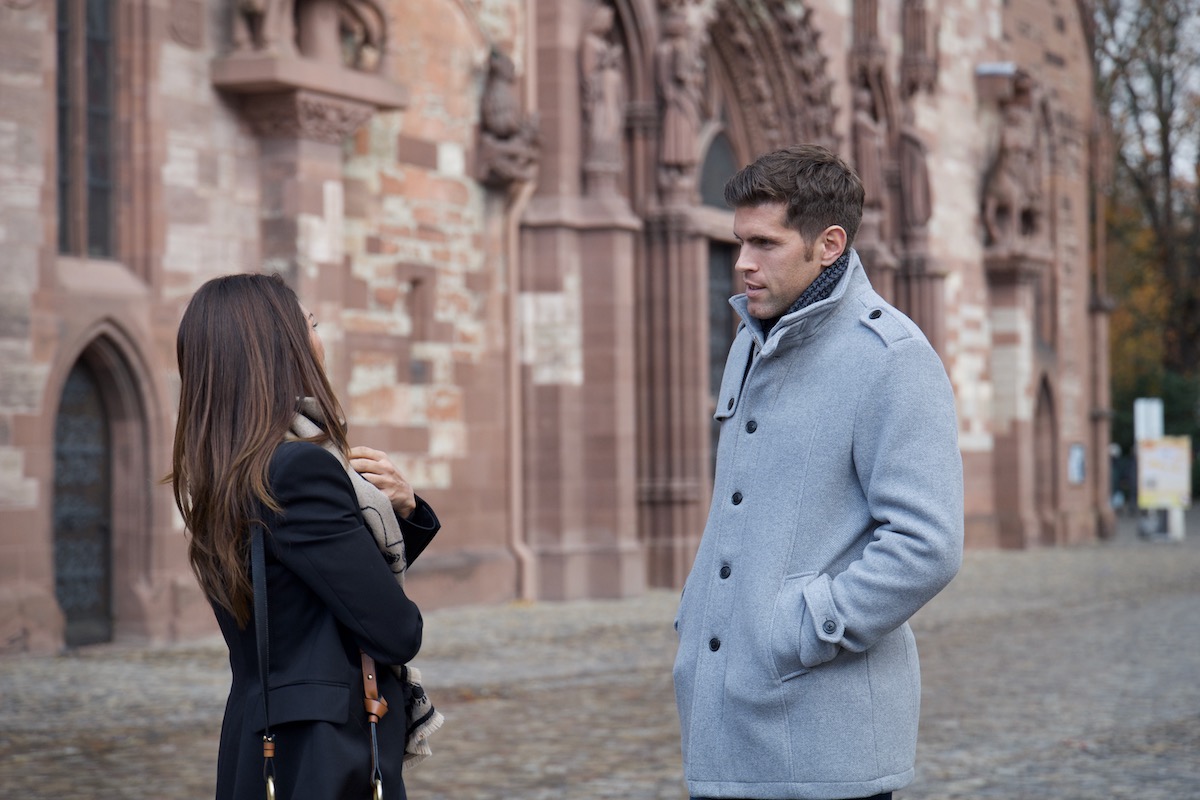
“At the end of my career, I had become very negative.”
Not long ago, you did coaching on what you wanted to achieve by 2019. So what happened?
I’ve done what I planned to do back then.
What was that?
For instance, leaving certain things from my career in soccer behind me. At the end of my career, I had become very negative.
What brought about this negativity?
It probably had to do with that fact that I was losing something very important to me that had made me stand out. My professional career gave me validation. I was synonymous with it. It took a lot for me to give up this career. Although I always said that I quit voluntarily, in professional sport, it’s never completely by choice.
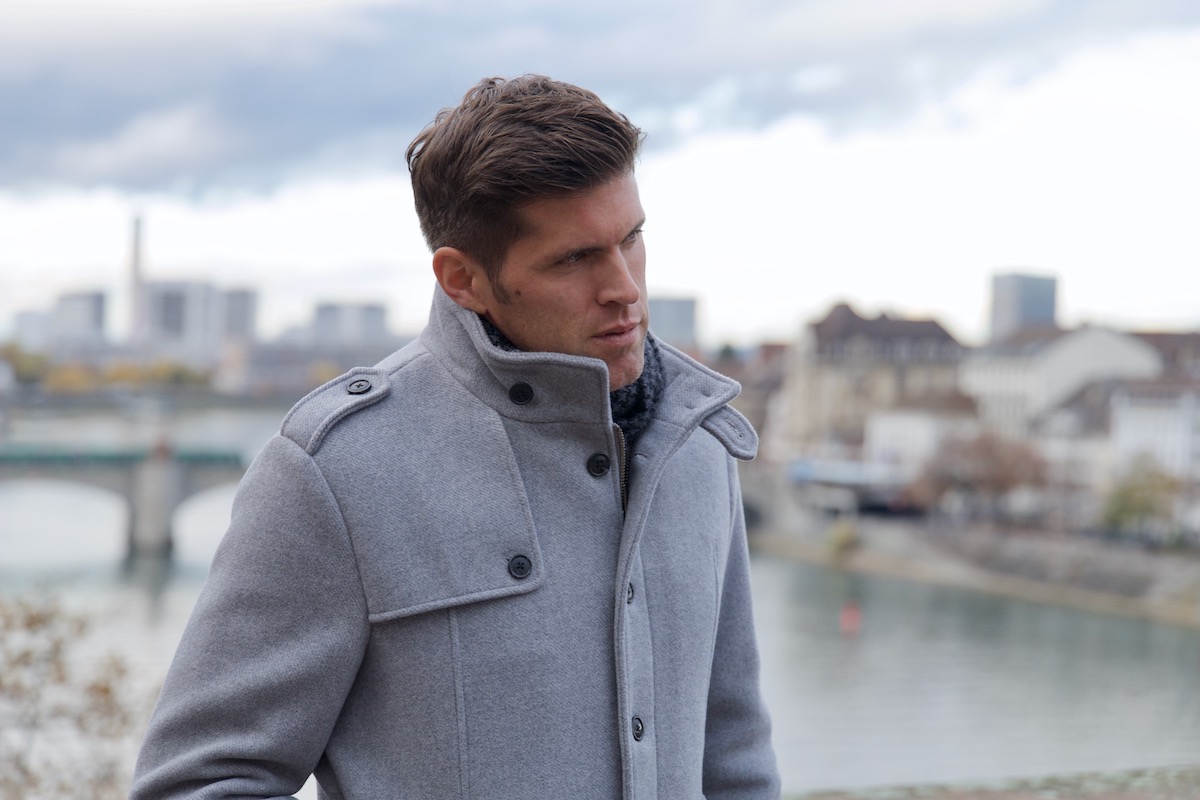
“I had a feel for the game. Mentally, I was on top form.”
What were the actual reasons, now you can look back on the end of your career with a bit of distance?
One reason was that things couldn’t have carried on as they were in Basel. I could have changed club, but I didn’t want that.
Because of your age?
Yes, because of my age, too. But most of all because of fitness. My knee was showing signs of wear and tear. Every year I’d have kept playing at that tough, high level, the problem would have got worse and worse.
You say you became negative. How did this come across?
At the end of my career, I knew more about soccer than ever before. I had a feel for the game. I could have told you in percentage how the game was balanced, even when the scoreline was 0-0. I had an unbelievably good feel for the details. Mentally, I was on top form. And it was at exactly that point that I became aware that my body could no longer keep up on this level.
That’s brutal.
Yes, absolutely. And then I thought I wanted to become a manager.
And you were really serious about it?
Oh yeah! I threw myself into the subject. But then I realized that it’s a completely different job from being a player. You have less leverage than I did as a player.
As a trainer, you can only shape the player to a certain degree.
That’s exactly what disillusioned me. And I had to ask myself: how many of the players I coach actually have the capacity to grasp what I’m teaching them? How many really want to learn something, or say “yes!,” but don’t put it into practice.
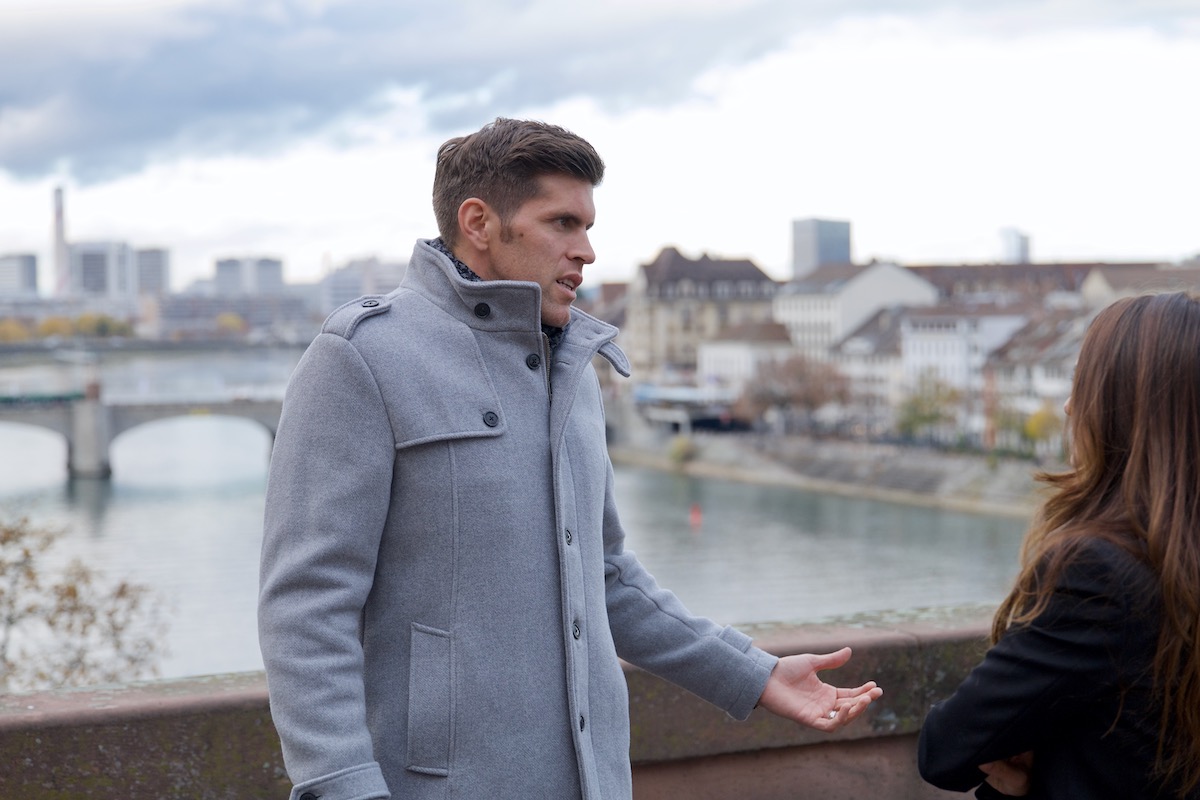
“For me, that’s when it was over.”
I see you as a very ambitious person. You’ve always looked for something new, something that brings you “frontal” recognition and validation – whether it’s as a young man in a band or later as a soccer player. No wonder it irritates you when others don’t show the same determination. Do you get the impression that the next generation lacks ambition?
It’s hard to say. But for me, that’s when it was over. As I’m so ambitious myself, I had the feeling that I wasn’t getting what I wanted from them. Particularly when I began training senior players…
Even worse? (laughing)
Yes, of course, they’re much less malleable than the boys, since they’ve developed a lot more personality. And what’s more, they were often hanging onto a dream that wasn’t realistic. For example, they thought they could still become professionals. This gap between perception and reality disturbed me.
Of course, there were always exceptions, someone might go from the fourth to the highest league. But that’s really one out of tens of thousands. Yet some of them still felt they could make it. They were fooling themselves. That might sound a little harsh. But I just couldn’t understand it.
And I say that even though I was a late bloomer myself: I didn’t play in the fourth-highest league until I was 19. Back then, I got offers from the first league, 1. Liga. But I told myself I would either go straight to the very top, or I’d rather stay where I was.
Doing things gradually wasn’t an option for you?
At most, as an attempt for two years. But I asked myself: why should I play one league up and work harder but still earn nothing? OK, between 18 and 22, I could have done it. But back then, it was already clear to me that I would either get the opportunity to play at the very top someday or I would leave it. That might just have been youthful exuberance, too.
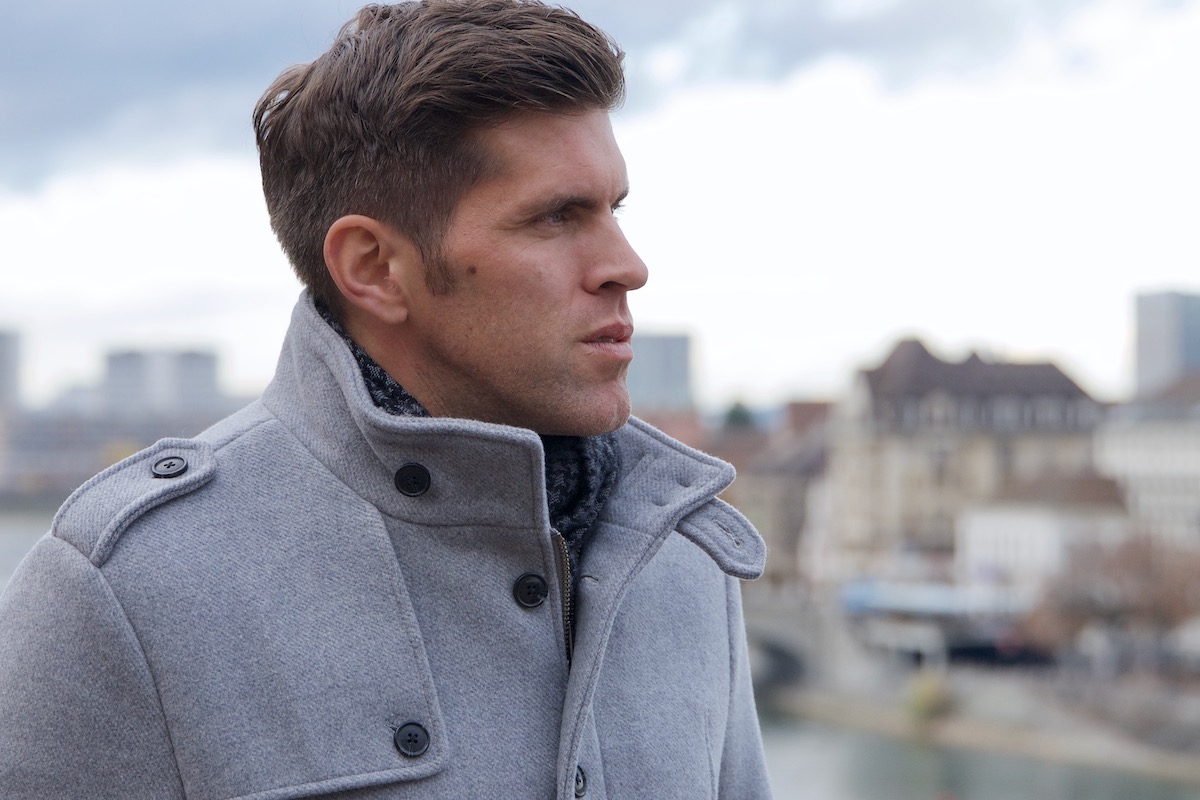
“I was taught to treat everyone equally.”
I had to smile when you said how ambitious you were and that it drove you crazy when others didn’t show the same determination. I tried to imagine how your parents must have felt when their son, in whom they had invested so much love, spent a while doing the opposite of what they wanted.
Did you call my parents?
No, but I know you grew up in a well educated family and rebelled a little as a teen. You just played soccer and dropped out of high school. What kind of a phase was that?
I simply noticed at some stage where my strengths were and where they were of more value. I got my recognition in sport. School itself was tough for me. But yes, I grew up in a family where education was very important. And I’ve always answered that by saying you can’t get started on anything with knowledge.
By the way, when I look at what our kids learn today, things have hardly changed in schools. Back in our day, there was no Internet. Today, you can Google all your knowledge and yet in schools it’s still often just about transferring knowledge. I sometimes wonder how that’s helping develop skills. But that’s a different subject.
In any case, I didn’t feel comfortable at all at high school. Thanks to soccer, I had friends from all walks of life. Including people with basic high school diplomas, with whom I’m still very good friends. I was taught to treat everyone equally – no matter who they were or what they had achieved. I’m really grateful for that.
But some of the people around me at high school were very elitist. They already had their whole lives mapped out for them, with the law exams or the medical practice they were supposed to take over from Dad.
But I was also just bad because I studied too little.

“For my father, a whole world collapsed.”
School just didn’t interest you?
Not at all. Today, someone I’m friends with tells me all I would have had to do is work a little bit harder and then I would have managed high school, too. But back then, I felt like I had to take a completely different path. I dropped out and did an apprenticeship as a gardener.
How did your parents react?
For my father, a whole world collapsed. His dream was academic training. As a young man, he hadn’t been able to afford it. He had to do his school leaving certificate later. And I just dropped out. Although he didn’t let me feel it, I knew I’d really disappointed him.
Why a landscape gardener?
I have no idea how I ended up doing that. But I thought it was cool because you’re outside. And you get a result from what you do. I got this “frontal” recognition you mentioned (laughing).
From whom?
From co-workers, from customers.
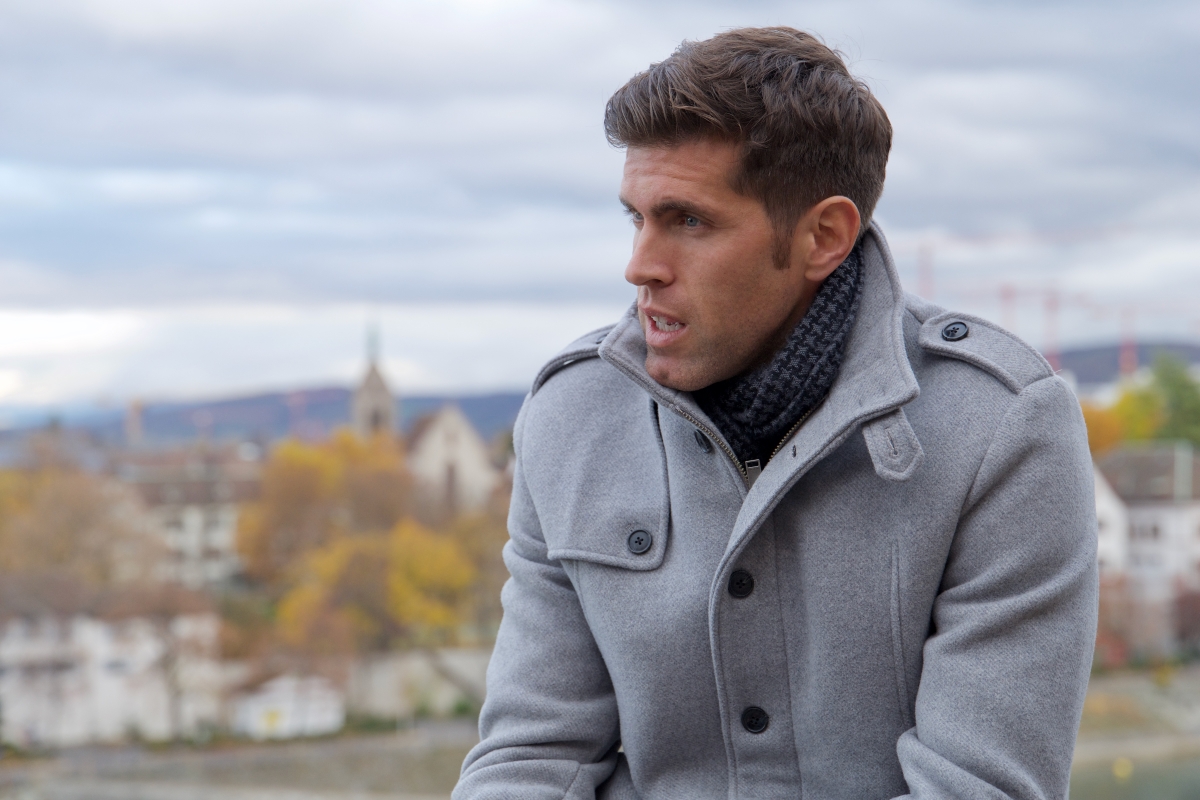
“I need to move within limits, with a clear framework”
Why do you seek this recognition so keenly?
You’re the first to find it out.
It doesn’t require a particularly deft touch.
Yes, and because…
Uh, are you avoiding the question?
I just want to answer the previous question properly first: Why I wanted to become a landscape gardener. For me, I liked moving within limits, with clear frameworks.
Really? I’m astonished all over again. You free yourself from one type of metaphorical corset to let yourself be squeezed into another one all over again?
The corset before didn’t have any framework.
And you need that?
Today I don’t, but back then, it did me good.
You wanted to be given a clear task to fulfill?
Right. All of a sudden, I was also doing well in vocational school. That gave me confidence. I successfully completed the apprenticeship.
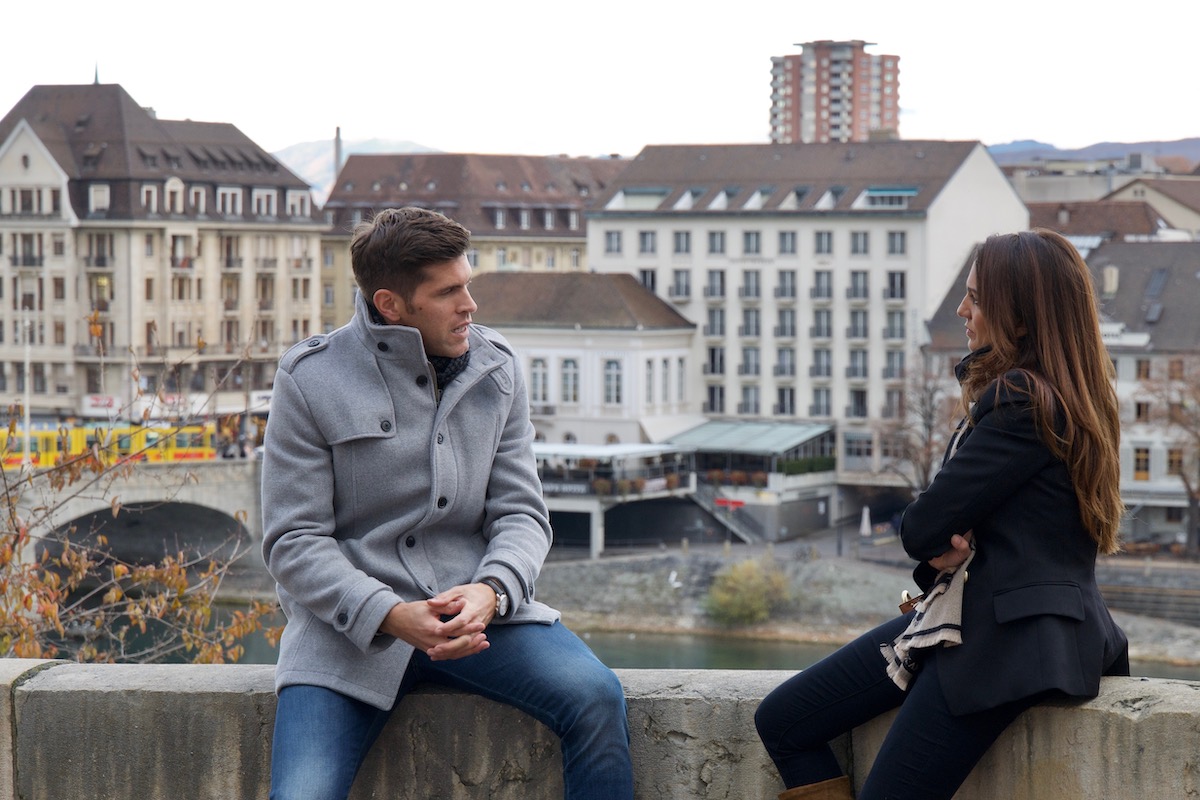
“If only I’d grit my teeth a little more.”
You mentioned that your father had to work very hard for everything. After your career in soccer, you yourself took a course in business and are currently training in coaching. Have you ever regretted not taking the academic path?
Yes, I’ve often regretted it. I often think, if only I’d grit my teeth a little more back then. But I must also say, back then, I couldn’t have done anything else.
Catching up wasn’t an option?
I got onto the soccer track then. The first two years, I didn’t know exactly how long things would go well for. I was a slow starter. At some point I thought about it and got information from the Swiss Education Institute (AKAD) sent to me. But then at Basel, we had international matches. We had a game almost every third day. So soon it was out of the question.
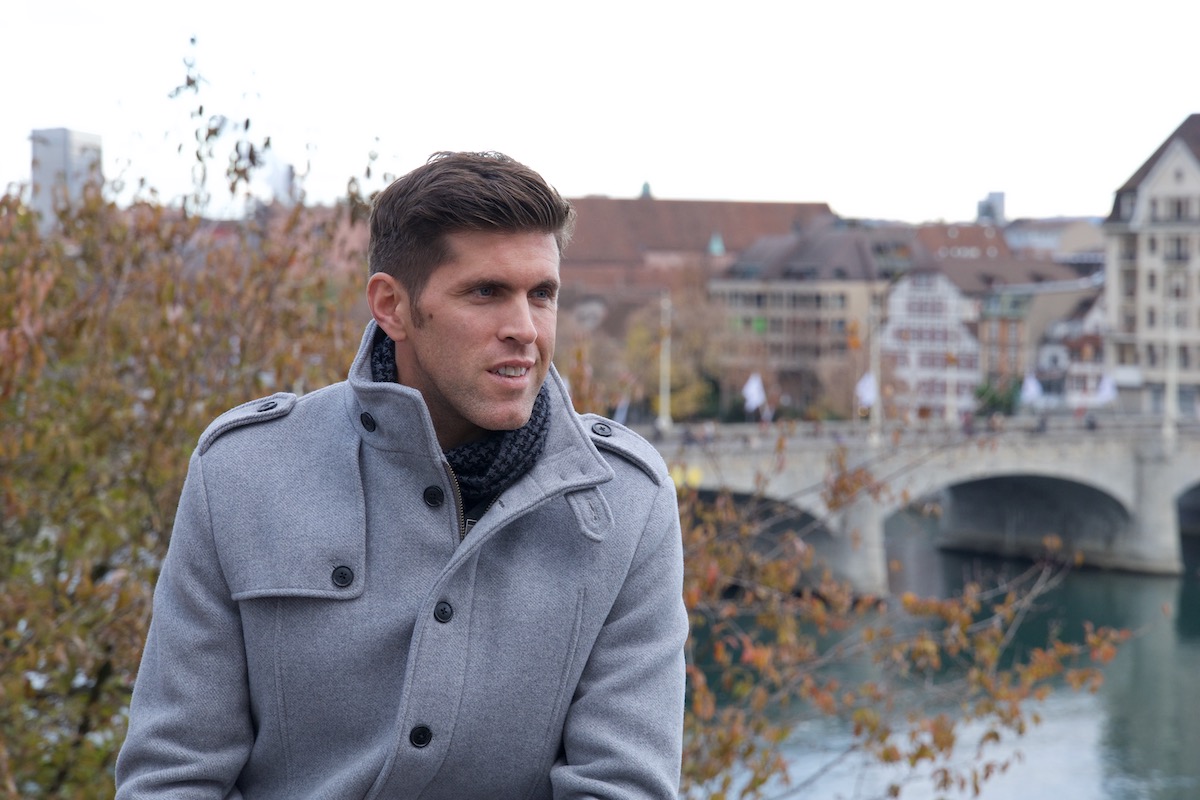
“I don’t have any work experience, since I spent 15 years playing sports.”
But what you’re describing must affect every professional athlete: they focus all their attention on sport at a very young age, when they’re physically fit. Then eventually you’re 30, 35 years old and realize you don’t have a plan B. Shouldn’t we offer young athletes the chance to undertake professional education and training?
Let me counter that with another question: what’s an education without professional experience? I feel that strongly at the moment. When I apply somewhere, they ask about my age. And then I say: I’m 40. I don’t have any work experience, since I spent 15 years playing sports.
So if you do a second qualification at the same time when you’re younger, your track record still shows you’ve never worked in this field.
But essentially you’re right. And today it’s much easier to acquire knowledge and to learn with video and blended learning.
Taking the time to study instead of relaxing in the demanding, structured life of a sports person takes a lot of effort, doesn’t it?
Yes, a great deal. It takes vision, first and foremost. For certain athletes, it would certainly be better to be obliged to do it than to manage on a voluntary basis. In soccer, studying while playing is unfortunately not common practice.
It’s much more common in other sports, like ice hockey: the goalkeeper Leonardo Genonihat moved from Davos to Berne for his degree. Something like that would be unthinkable in the world of soccer. But I’m convinced that exactly that should happen in the sport.
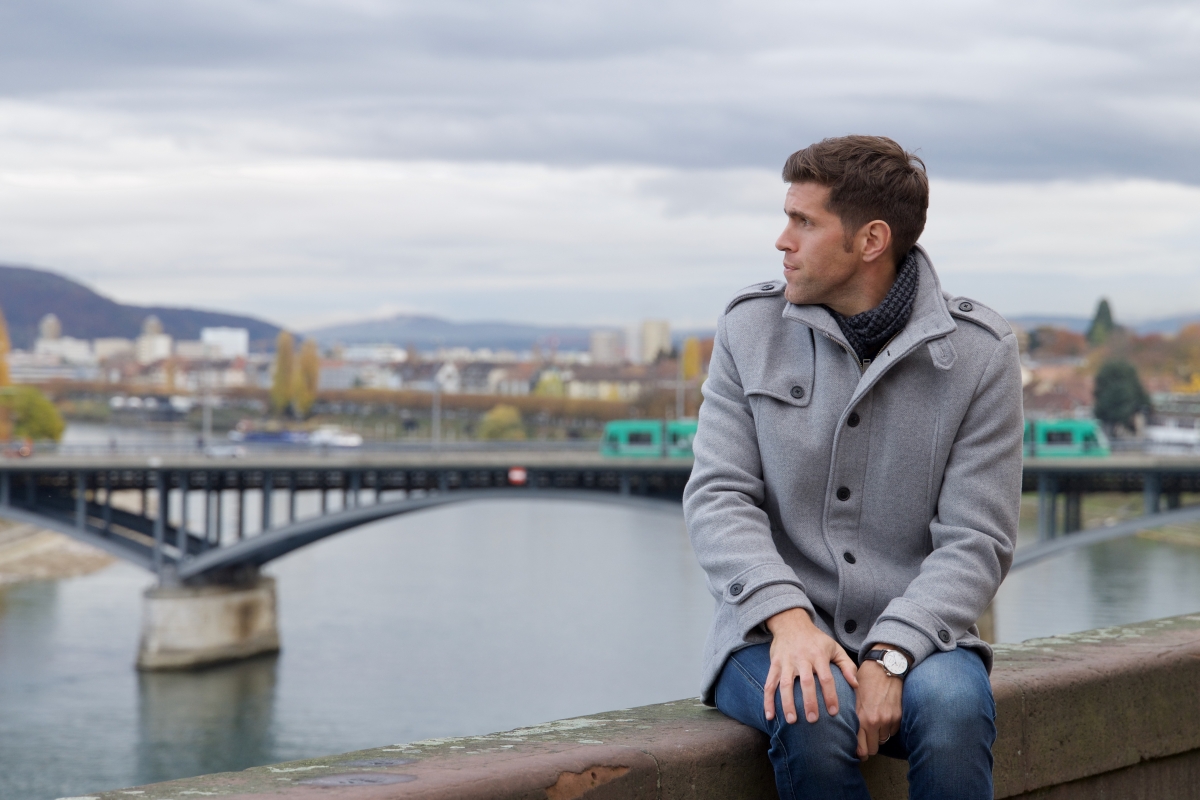
“I had the impression that my skills were suddenly worth nothing.”
So you don’t eventually – in the middle of your life, in your best years – have to look for a new passion?
That’s right.
That preoccupies a lot of people – whether they’re athletes or not. But isn’t it even harder to find a new passion when you had one that shaped your entire life?
That was another reason why I was so negative at the end of my playing career. Because I realized that my skills were suddenly worth nothing.
Shortly before you said farewell to professional sport, you predicted in an interview that a sense of emptiness would follow. What did you do to combat this?
At the beginning, I threw myself right into this manager business. So the emptiness was only there to a certain extent. Then I quickly noticed that being a manager wasn’t right for me, and it came back. It takes a moment to understand after so many years that it’s really over.
Have you accepted it now?
Yes, yes. It’s been six years now. Now I even see things a little differently: lots of people still see me as a soccer player. The question is whether I can manage to stop people from seeing me only as someone who played soccer.
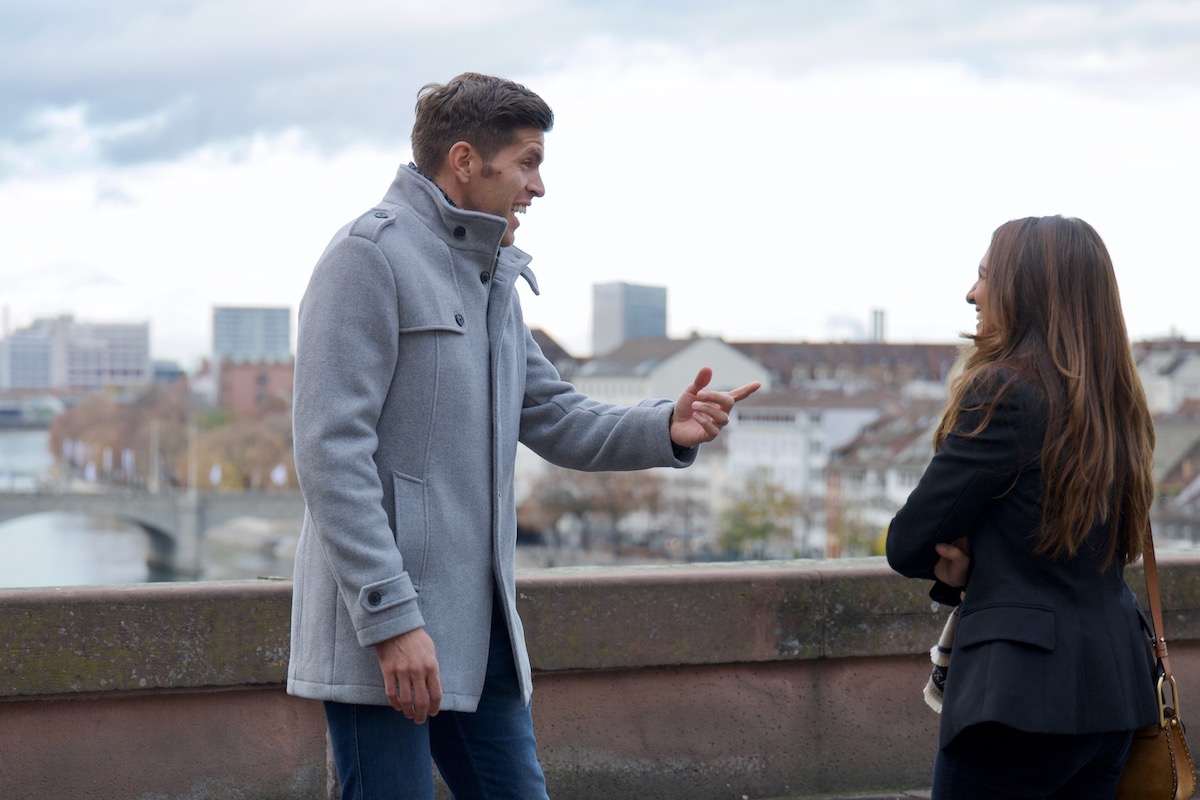
“Many people seem to believe that soccer players are basically dumb.”
Is that a curse?
No, it isn’t a curse. It’s a blessing. But we humans love to compartmentalize. And I’m always in the footballer compartment, and it’s low down. Many Swiss people seem to believe that soccer players are basically dumb, at least according to the cliché. I always say that “among the blind, the one-eyed man is king”.
Would that be you, then?
You said it (laughing). Just one-eyed though, not well-seeing. I still have dealings with a lot of soccer players and I can confirm that there are some very intelligent players: Marco Zwissig, Fabian Frei. I saw how Akanji did mental arithmetic on TV, and I was really impressed.
Soccer players are a mirror for society: if you’re too dumb, you can’t become a good footballer. What’s demanded of you on the pitch now is very complex.
Do you sometimes feel as if you have to explain or justify yourself because you’re a soccer player?
No, I don’t. But it always goes the same way. You start a conversation and five minutes in, you hear something like: “You’re not such a dumb soccer player after all”.
People treat you totally differently when you’re hidden beneath a mask at Basel’s Carnival. How liberating is that for you?
Very liberating. It’s a lot of fun. It’s funny when people don’t recognize who you are.
I think it’s nice: You speak to people you don’t know and then you take off the mask and they say “ah, it’s you!”.
And are they surprised?
They immediately become friendlier (laughing).
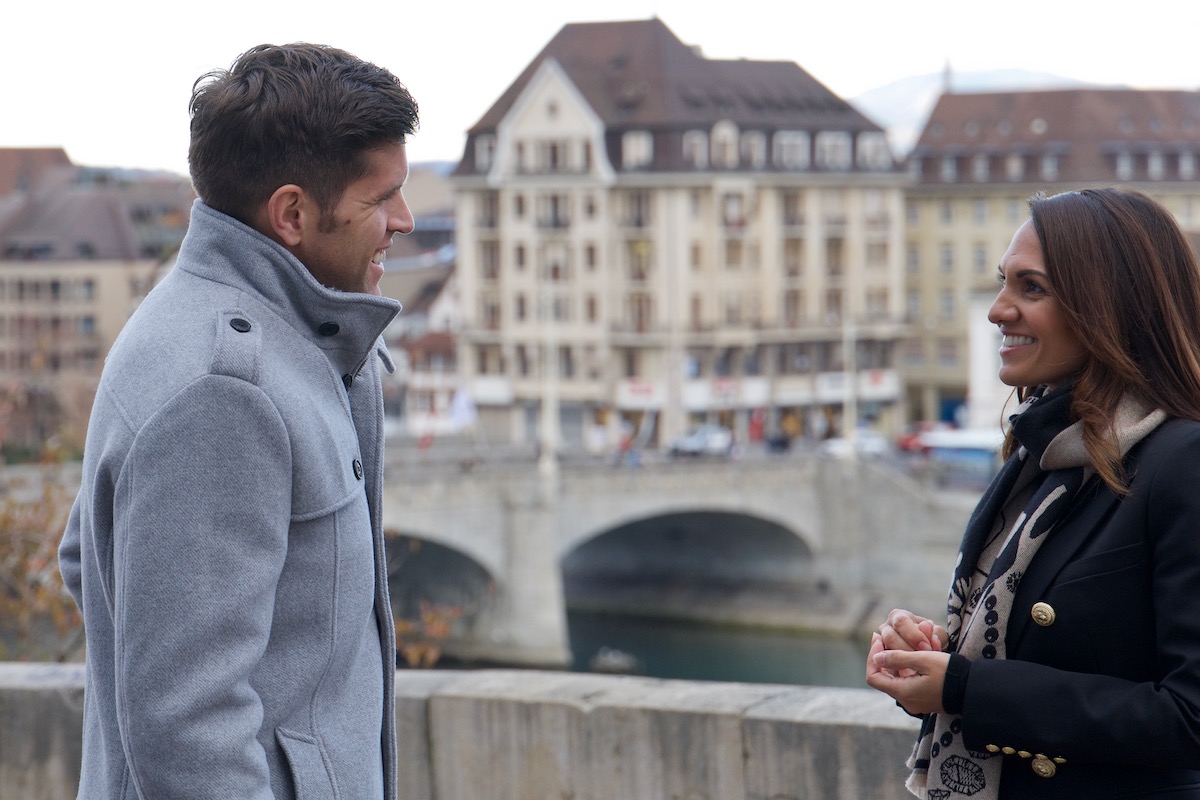
“The invisibility cloak from Harry Potter doesn’t exist.”
It’s amazing that you like Basel’s Carnival so much when you would usually prefer to avoid large crowds. You love music but don’t go to concerts because you don’t feel comfortable in crowds. But does that mean that your fame has drastic consequences for your day-to-day life?
I still go to concerts, but I wouldn’t go to an open-air one.
Being among people doesn’t bother me in itself. I also like chatting to new people.
But I just can’t enjoy an open-air experience like everyone else. I can’t disappear into the crowd like someone else can. Because people know me. People talk to me who wouldn’t otherwise. They want photos. They listen to what I say. There are some who have had too much to drink and become offensive and lose their inhibitions. It’s a shame the invisibility cloak from Harry Potter doesn’t exist.
I like to give the example of how young people are no longer able to feel like they aren’t being watched. Before, you’d be out with your boys and someone might ask whether it was possible to jump over something. Then you’d all try it, and maybe someone would fall badly. Only those who were there saw what happened. There was no proof.
It isn’t like that now. Everything might be filmed. And the Internet never forgets. You can find something right away that I said in an interview eight years ago. You Google my name and the same thing pops up again. That changes people. They become much more calculating. And a certain sense of mystery, which I think is cool, is lost that way.
What are you teaching your children when it comes to the public eye and social media?
We talk to them about it a lot. We show them examples of the influence social media can have – particularly for girls. Knowing that certain sensitive photos or information will never disappear from the Web ever again. We teach them what something can look like on the outside, because we have more life experience.
Do they listen to you?
So far, yes (laughing).
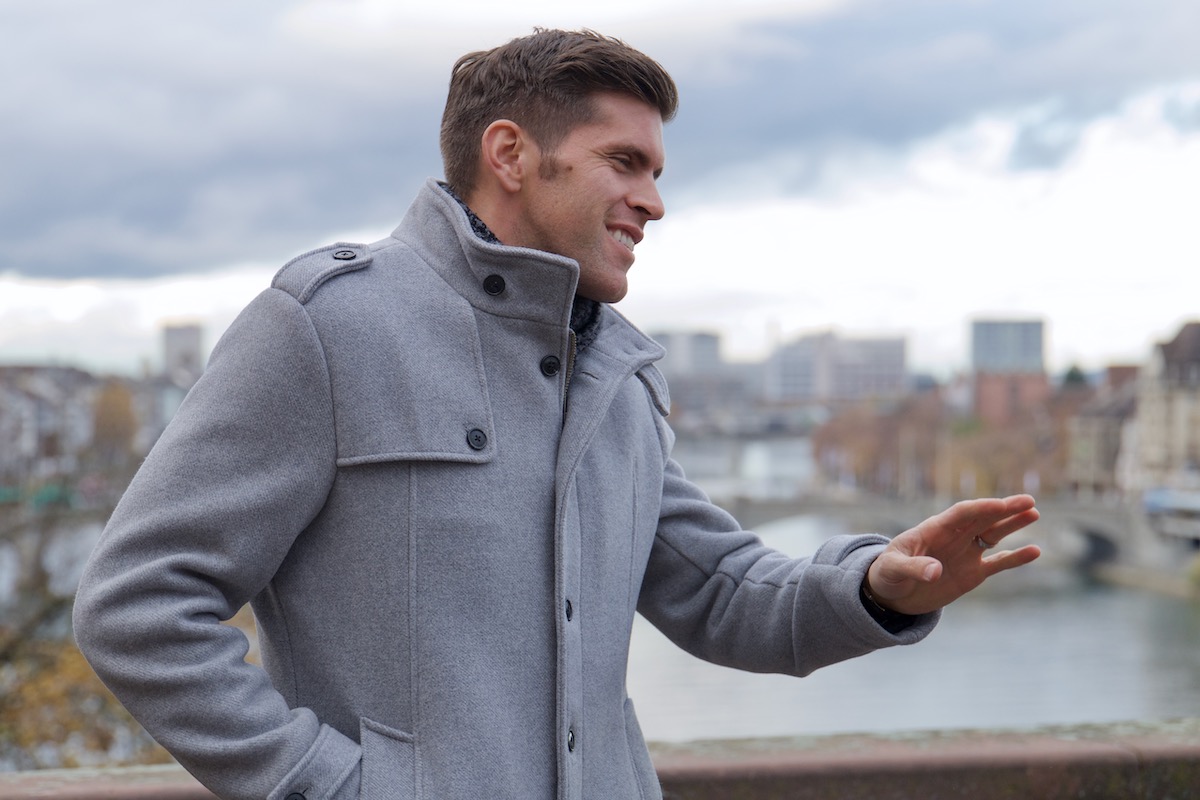
“For me, there’s nothing worse than pushy parents.”
Do you see yourself in them? When you were their age, you wanted to break out. Do you see these tendencies in them?
No, not really. We talk to them a lot more than my parents talked to me. I’m always happy when they come to me with their problems. Then you can still have an impact. There were lots of things I didn’t tell my parents when I was young. It was another time, another world.
Do you think that we’re closer to our children than our parents could have been?
Maybe that’s the illusion all parents have. I don’t know. At the moment I think so, yes. But they haven’t hit puberty yet.
I wonder if they take after you, because I know your son didn’t listen to you 100%. It probably wasn’t your first wish for him to become a soccer player. Just as that wasn’t your parents’ dream.
So, of course, I think it’s fundamentally a good thing, because it’s a passion we share. But when I’m at a match, those who aren’t so bright do ask what I’m doing there. “Ah, your son’s playing? Which one is he?” There have been occasions when I’ve given the wrong number.
Is your son aware that – if he carries on with soccer – he’ll always be compared to you?
Yes, he knows. He plays for the village club. They all know there. It’s not an issue there.
When you see your son playing, can you relax and step back?
Absolutely! For me, there’s nothing worse than pushy parents…Take my own childhood: I wasn’t encouraged and I managed it anyway. So I don’t believe in extreme encouragement. I don’t encourage my children, I support them.
Roger Federer is a great example: he decided aged 14 that he would go to Romandie and focus completely on tennis.
And he left school to do it.
Right. His parents weren’t sure. When he was homesick, they said: you wanted it, now you need to get through it.

“Urban areas are often feeding grounds for major developments.”
You both grew up in Münchenstein, in the Basel-Landschaft area. How well do you know each other?
We know each other quite well. We call or text each other now and then.
Friends?
Yes, but he travels so much, we don’t see each other very often. And I’m very reserved. I always listen to the other person’s signal, no matter whether they’re famous or not.
Roger Federer is quite a normal guy, even with everything he’s achieved. That remains fascinating.
What’s in the water in Münchenstein that means it’s been home to other successful athletes, as well as yourselves?
Yes, the Yakin brothers are from Münchenstein, too. I don’t know. These urban areas are often feeding grounds for major developments… (laughing). The Yakins and Federer grew up very close to Joggeli Stadium.
Federer wasn’t sure for a very long time whether he would choose tennis or soccer.
It’s true! The Yakins and Federer used to always go to these facilities together to play soccer.
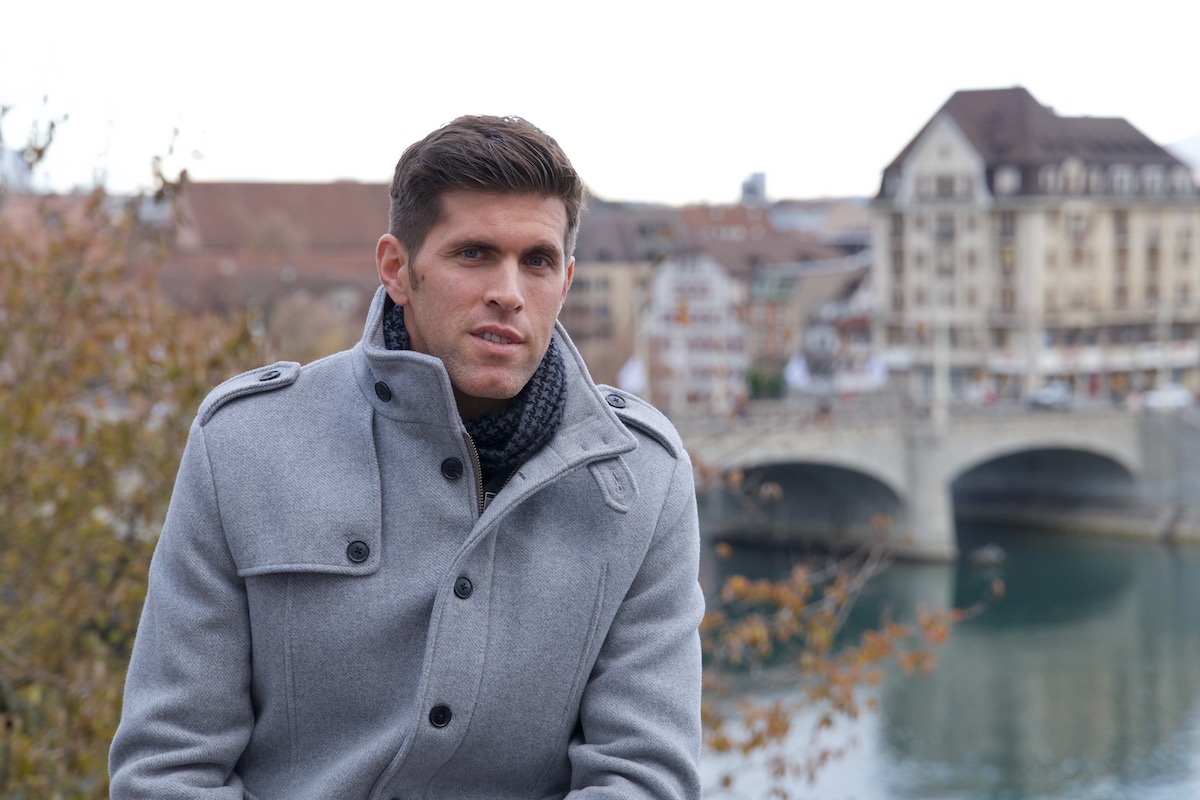
“The Federal Council elections are a classic example of how Switzerland works.”
I’d like to come back to the question you never answered for me: Where does this urge to strive for the top come from? I don’t find it negative at all, by the way.
The very fact you say that shows that it’s viewed negatively in Switzerland.
Do you think so?
Yes, the Federal Council elections are a classic example of how Switzerland works. You must never be the favorite. You need to suddenly come from behind.
You’re not shy about speaking your mind. You don’t pull your punches. You complain when you receive unfair treatment. That takes courage. Where does that come from?
That’s a very good question. I can only say that it must have always been in me.
Then you must have been an exhausting child, although you don’t seem to have been.
No, I actually wasn’t. I wasn’t an exhausting child at all. I just sensed early on how I had to behave for things to work a certain way.
You manipulated people?
That’s the negative interpretation – maybe I did.
Then I’ll give the positive interpretation. You have a good understanding of people, if you know how to achieve your goal.
That may be the case. But I’ve always responded very strongly to unfairness. Today, it can still make me angry, aggressive and loud.
Then what happens?
Confrontation.
It’s a real fight?
Yes, it can get messy.
What’s the best way to get you back out of it?
With options. When I can decide for myself, then it isn’t a problem. No matter how hard we’re fighting.
But when I’m fighting with someone and they start praising or distracting me, that just riles me up even more. It’s not so easy with me.
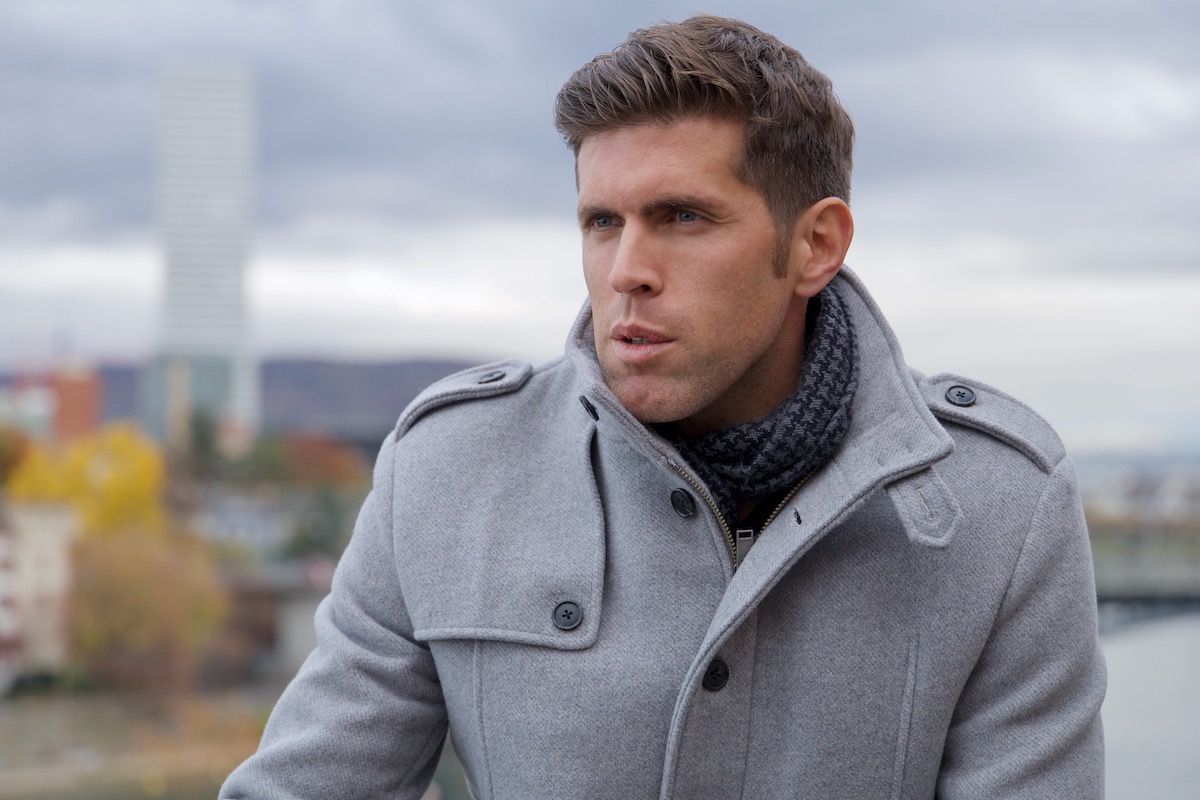
“Unfairness is something that always annoys me.”
Are you unforgiving?
No, I’m not unforgiving at all. You can ask my wife.
Why should I ask your wife?
She’d confirm it.
Unfairness is something that really always annoys me. It’s always the same: Something unfair happens, for example, that whole thing with Turkey in 2005 (A Turkish assistant manager appeared to obstruct Huggels colleague Valon Behrami and trip him up, whereupon Huggel aimed a kick at the coach from behind).
What we went through then was unfair. That’s why I reacted the way I did. That I was judged for what I did, is clear to me – objectively. They saw me, I was “caught on tape”. But it took me years to be able to deal with it.
And yet I’m too positive to go around for years complaining about how unfair it was.
This story reminds me of the “double eagle” scandal at this year’s World Cup. Did you speak to Shaqiri and the others about it?
I’m always in touch with them. I can sort of understand why that happened. With everything that went off before. In comparison to my situation, it wasn’t as bad. It was a gesture that wasn’t directly aimed at anyone.
They didn’t kick.
Yes, that’s a big difference legally.
When you’re in this rage…
Now I seem like a real hothead… (laughing)
No, not at all. For me, it’s all got much more to do with passion. Do you still feel it in these moments? Or are there situations where afterwards, you think: Why on earth did I do that?
Yes, of course! Clearly. If I didn’t, it wouldn’t reflect well on me. I already know that at times I’ve totally overstepped the mark.
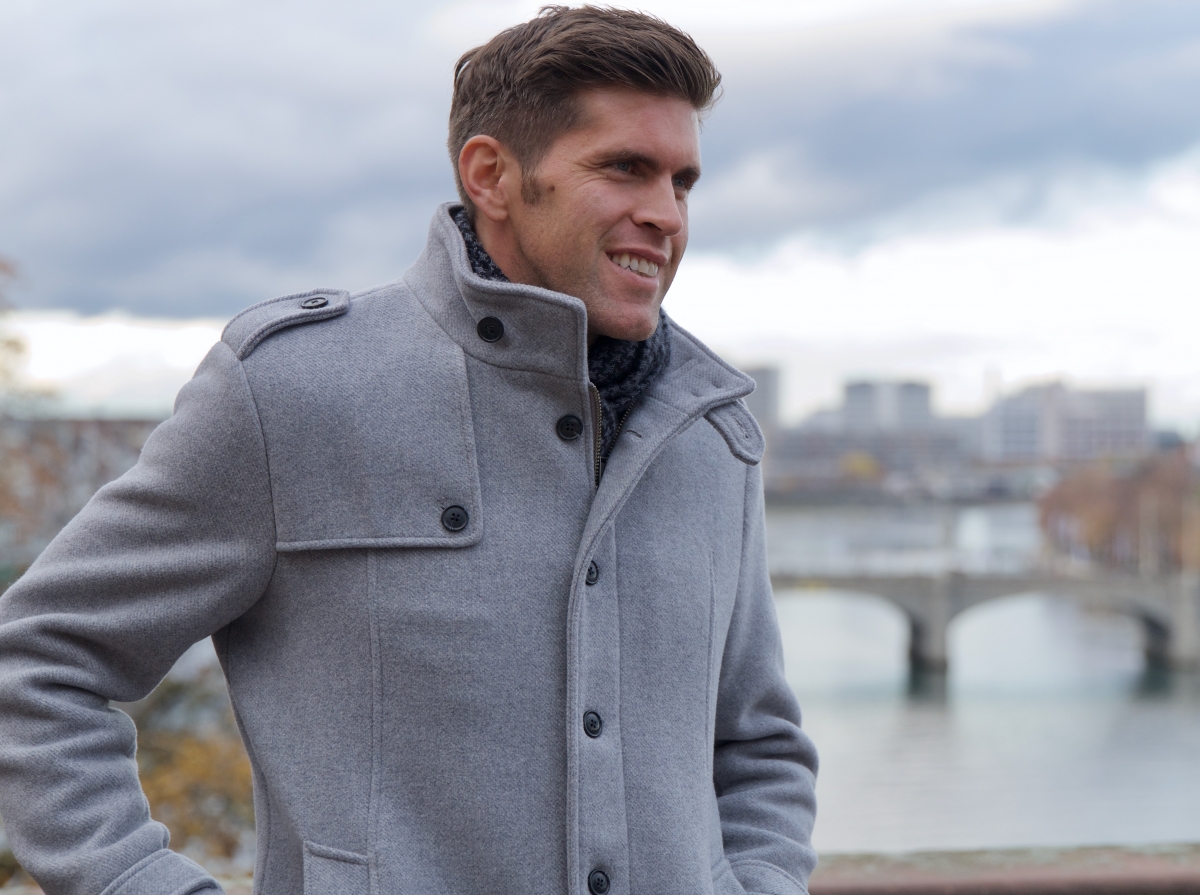
“I can start working towards something new again.”
2019 is approaching. You said you like to look ahead. What’s going on for you at the beginning of the year?
I’ve got the feeling that the post-career process is over and I can start working towards something new again.
And what would that be?
Coaching, for example.
What exactly does that involve?
Executive training. The cool thing about this training course is that it isn’t highbrow, it’s designed to be very direct and practical. Attendance is only required half a day per month. You can join whenever you like. It doesn’t build on itself.
And there are so many customers: a lot of people end up in management positions – virtually unprepared. Either they’re self-employed and need to hire people or they’re the best employees and get promoted.
What do you do with them?
On the one hand, the program from this Leaders Academy, which I’ll do with them, and on the other hand, my experiences as a sportsman and an experienced one at that – with experience of different coaches’ management styles – are brought to bear. My coaching sessions are peppered with a lot of anecdotes.
And I like working with practical examples: when you manage a soccer team, basically, the 11 players on the field love you, and the others don’t. That’s the starting point. But how do you manage to get the players on the substitutes’ bench to bring out their best performances when they play?
I have experience with a few managers who were better at that than others.
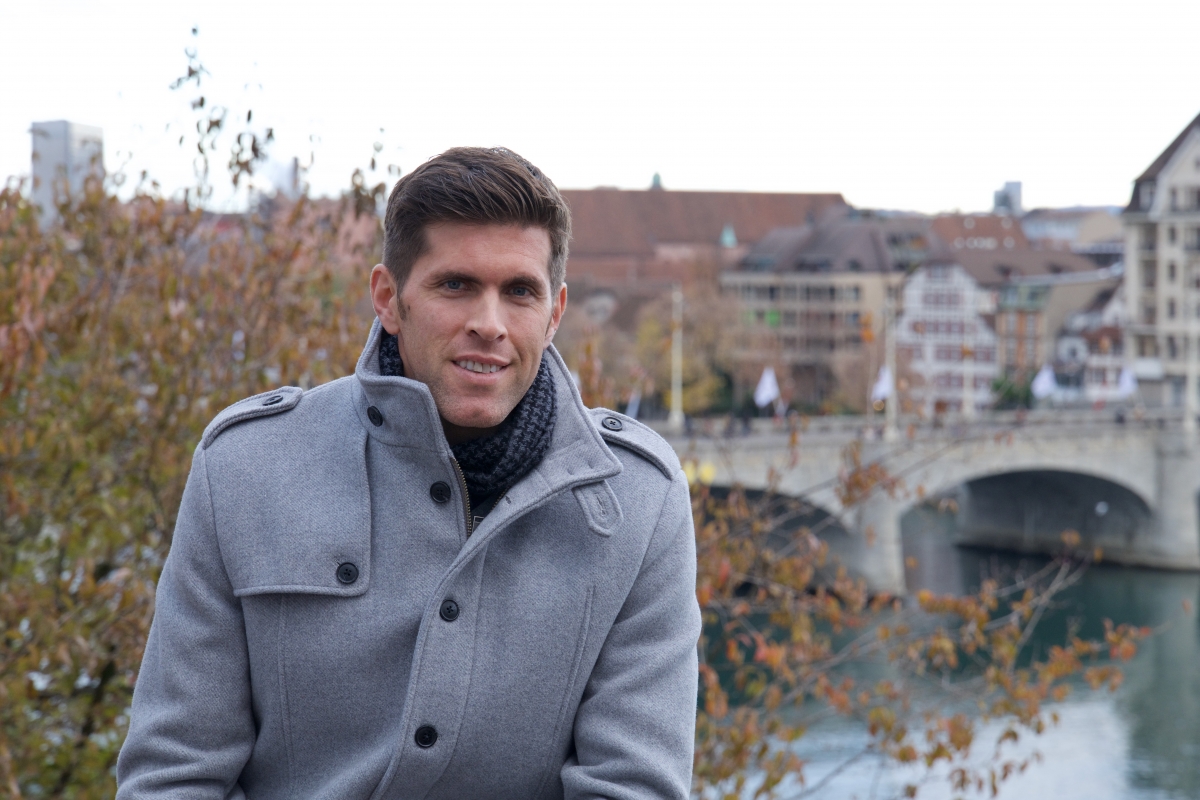
“I love delving into something heart and soul.”
That means you want to help supervisors lead employees who are usually just fellow travelers to their big moment?
You said something interesting before: there are lots of people with talent who don’t exploit it. That’s exactly the issue. And that executives are aware of what that means, too.
I often see in companies that people who are promoted to top positions feel as if they can work as much as before and manage people at the same time. But that doesn’t make any sense.
Managing means getting the people who are working to a point where they can deliver their best performances – and be happy with that. In our field, that hasn’t quite penetrated just yet. You always have the feeling that management isn’t the same as working.
“Earning lots and doing nothing” – another cliché. It sounds like an area that’s very exciting for you, where you can pass on your experience. Yet the question arises: soccer was your life. Is there another passion you can delve into heart and soul?
In our previous conversation I said no and today I’d like to say I hope that one day I’ll find a passion like this again. So far I haven’t yet, but I hope to. Because I love delving into something heart and soul.
Are you looking for that feeling?
Yes. Many people have asked me in my professional career how I managed to motivate myself to attend training every single day. I have always answered that I think it’s cool to train every day.
Of course, I doubt whether I will find another motivator in my life as strong as in sport. I wonder because of my age, too. Can you really have this incredible determination twice in a lifetime? Time will tell. To some extent, an athlete stays an athlete in their head their whole lives. You are always optimizing the best possible way to achieve maximum performance.
Text: Anna Maier
Images: Silvan Dietrich/ Leica
***
Anna Maier Makeup: Clinique
Anna Maier Hair: Coiffure Valentino
Newsletter
Subscribe to our newsletter and you'll get notified every time a new article is online.


